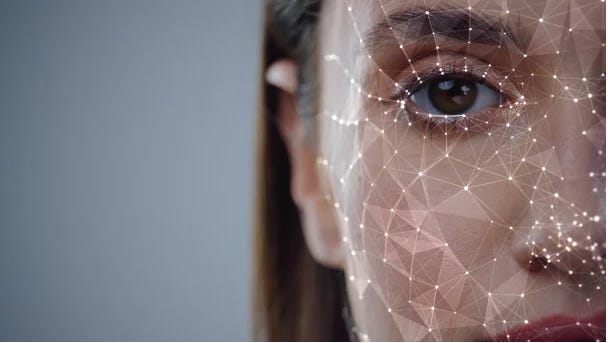Passports and identity cards are to become completely digital in the EU, and border controls are to be carried out using biometric recognition processes.
APR 10, 2023
Exposing The Darkness is a reader-supported publication. To support my work, please consider becoming a paid subscriber.

By Stefan Krempl April 6, 2023
Passports and identity cards will be abolished according to the ideas of the EU Commission.
Instead, there should only be digital documents. At the latest since the Corona pandemic, citizens would expect "the use of contactless technologies as a basic requirement for safe and smooth travel," writes the EU Commission. She wants to "strengthen security regulations with a view to a safer Schengen area", simplify travel "and thus increase the attractiveness of the EU".
"The exclusive use of physical documents makes efficient border crossing controls difficult, and issuing such documents in remote locations can pose problems, ultimately hampering international travel," reads a document that was the basis of a public consultation on the impact assessment in the autumn. "The use of biometric solutions" should enable "the authorities responsible for screening" and border controls to "determine the identity of travelers more reliably and at the same time reduce the risk associated with individual travelers". Of the 360 opinions on the impact assessment, almost all were negative.
Public consultation is already ongoing
Despite this, the Commission is going ahead and is now consulting several variants of the "Digital Travel Credentials" (DTC). Until June 28, anyone can give the EU Commission their opinion on digital travel documents via a questionnaire. As an option, the authority is proposing an EU regulation that would oblige the member states to implement the planned DTC standard of the International Civil Aviation Organization (ICAO).
Citizens should then be able to cross borders without conventional e-gates or control booths. In return, a "comprehensive comparison of biometric data" is carried out. For this purpose, the EU has been building a biometric super database for all IT systems in the security sector for several years. A legislative proposal is to be made in the third quarter of 2023.
Over 300 critical voices in the autumn impact assessment
In the autumn impact assessment, there were 360 opinions – almost all negative. For example, Sweden’s National Health Federation, which campaigns for natural medicine, severely criticized the project when it was explored in the fall: It was only the EU governments "that felt the need to monitor people’s health" and vaccinations that had been carried out. This is "an unhealthy approach" that destroys the idea that everyone with a passport or ID card can travel freely. In addition, the person who is carrying a travel document in their mobile phone can be tracked using the GPS function. This alone represents "a major threat to privacy".
Other participants also see the right to informational self-determination at risk. If the data from ID cards could be queried without contact, you would quickly lose control. Digital travel documents are insecure and reduce people to biological features such as fingerprints, face, and iris. With appropriate scans, artificial intelligence (AI) gets too much power, although it shouldn’t actually make such decisions.
Source: heise.de

